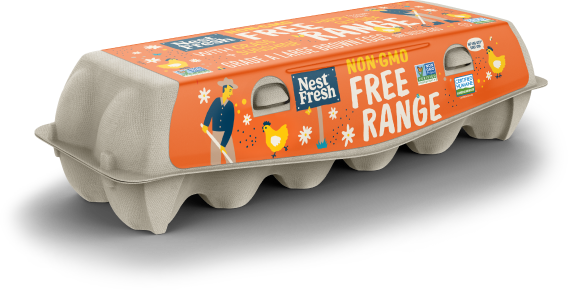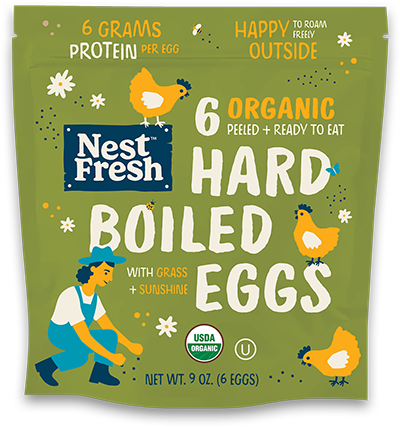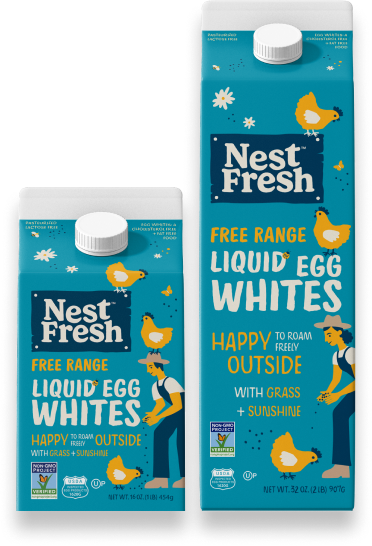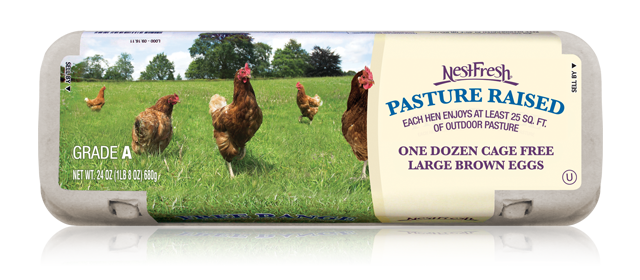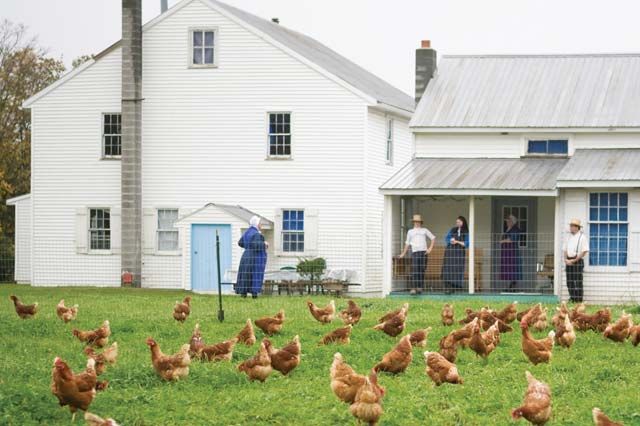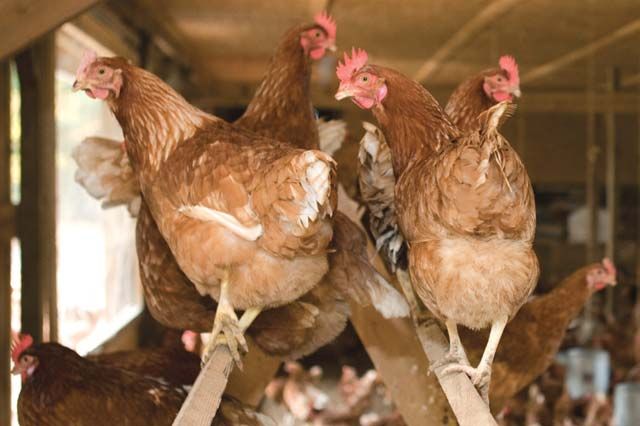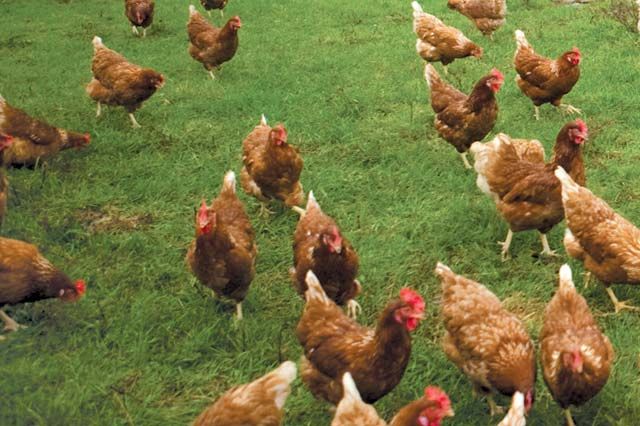Fans of NestFresh Eggs already know that all of our eggs come from family farms that produce 100% cage free eggs, but we get a lot of questions about all the different types of eggs that we produce—organic, Non-GMO, Pasture Raised. All of these options can be confusing. In order to help with that confusion and help you pick the right eggs, we are going to be sharing posts that explain what makes each egg special. Today, we take a look at the unique farms that produce NestFresh Pasture Raised Eggs and the strict standards that they follow to produce these truly natural eggs.
Produced without harmful chemicals on family farms that use rotational pasturing, NestFresh Pasture Raised Eggs go beyond cage free with at least 25 square feet of pasture per hen. NestFresh Pasture Raised Eggs come from hens that live an even more natural way of life—free to move around large barns furnished with nestboxes, perches, and dustbathing areas that encourage them to exhibit their natural behaviors as well as vast pasture space to forage while enjoying sunshine and fresh air. We believe that small family farming with a focus on animal welfare and environmental stewardship is good for the hens, the land, and you.
Because there are no federal standards for pasture raised egg production, NestFresh farmers have agreed to voluntarily follow internal standards for the health and wellbeing of our hens and the land they pasture. It is our goal to hold ourselves to the highest standards for cage free, pasture raised egg production. We believe that you are entitled to know how your food is produced, so we share our full standards in the hopes that we raise our hens and care for the earth in a way that meets your expectations. You can view the full standards on our website.
Another question we get about the Pasture Raised Eggs is why the shells of some of the eggs are so light compared to other brown eggs. Some of the shells are lighter than others, even though they are all brown eggs and come from a breed of hens that lay brown eggs. These variations in shell color are totally normal, and even a sign of the special way that our Pasture Raised Eggs are produced. This variation is due to the fact that the hens have a lot of access to pasture, which means they get plenty of sunlight. The high levels of sunlight help the hens produce extra vitamin D. These increased levels of vitamin D affect the color of the shell, making them lighter.
For more information about NestFresh Pasture Raised Eggs and more photos from the farms, visit our website.
